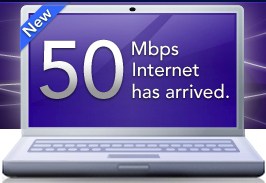 Despite claims that broadband is not eroding Time Warner Cable’s cable television business, the nation’s second largest cable operator has begun a “TV Everywhere” trial to expand broadband viewing options for “authenticated cable subscribers” and plans IPTV tests by the end of this year.
Despite claims that broadband is not eroding Time Warner Cable’s cable television business, the nation’s second largest cable operator has begun a “TV Everywhere” trial to expand broadband viewing options for “authenticated cable subscribers” and plans IPTV tests by the end of this year.
A “small number” of subscribers are now participating in the TV Everywhere trial in the New York City area, accessing premium channel content online, if they also subscribe to the channel.
James Manchester, regional president of network operations and engineering in the company’s New York City system told Broadcasting & Cable that the tests will verify whether the authentication process functions properly.
Manchester expressed urgency that unless Time Warner Cable moves to manage video content online, the company will continue to lose subscribers.
He told B&C cable’s erosion of video subscribers, at a time when digital voice and broadband subscriptions continue to grow, makes it essential to move to more of an IPTV environment.
“It’s no secret that we’re losing video subscribers as an industry,” he said. “We can’t afford to wait.”
Time Warner Cable sees challenges from several potential competitive threats:
- Online video: Services like Hulu and Netflix, and time-shifting services that allow viewers access to on-demand programming online represent a real threat to the traditional cable-TV model. Customers can cut the cable cord and watch everything online for free or for around $10 a month.
- IPTV: Niche and ethnic programming delivered over IPTV networks allows third parties to create mini broadband-based cable systems using hardware that mimics a cable box, delivering potentially dozens of channels to subscribers without giving a cut to the cable company.
[flv]http://www.phillipdampier.com/video/Skyangel IPTV.flv[/flv]
SkyAngel used to deliver its lineup of Christian television channels over satellite, but switched to an IPTV platform in 2007. This video explains how the service works. (3 minutes)
TV Everywhere allows Time Warner Cable to control who has access to cable programming, restricting it only to those who haven’t cut cable’s cord.
Time Warner Cable’s solution for IPTV competition is to bring those services under TWC’s own menu of offerings.
One example in KyLin TV, a multi-channel Chinese language IPTV service. Today, customers pay KyLin TV for service they watch over Road Runner’s network. But Time Warner Cable could potentially get a piece of the action if it moved KyLin TV into its own IPTV package.
Manchester says TWC would like to be able to make such IPTV programming services an extension of the TWC offering.
Despite some earlier assertions made by company officials that DOCSIS 3 upgrades were designed to improve broadband service for Time Warner Cable customers, it turns out DOCSIS 3 is the foundation for the cable company’s future IPTV and “big pipe” platform. Manchester says DOCSIS 3 will enable the company to service the wired home of the future. It will deliver content to an edge device (such as an advanced router) with a hard drive and caching capacity that will link to home computers, MP3 players, or any other device on which consumers want to view content.


 Subscribe
Subscribe


